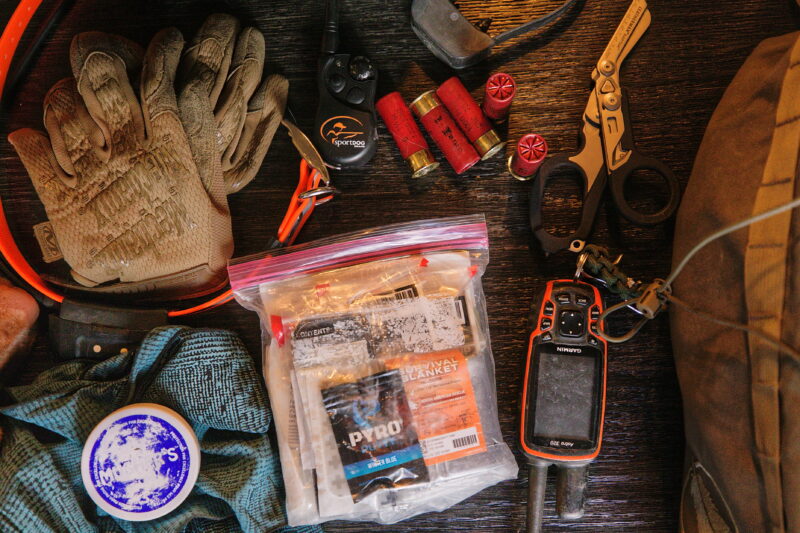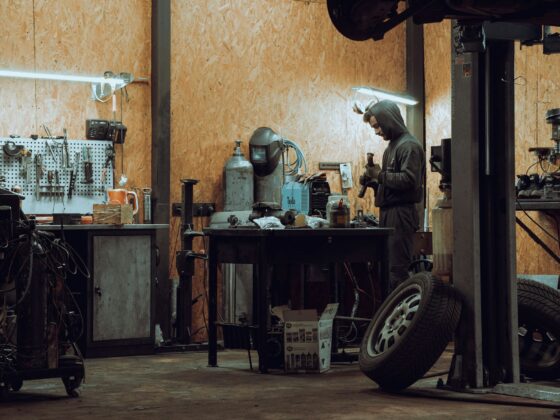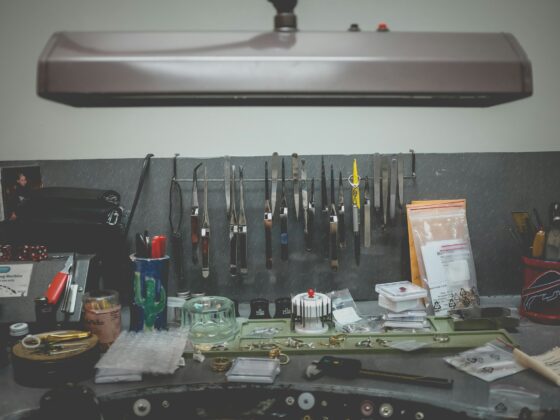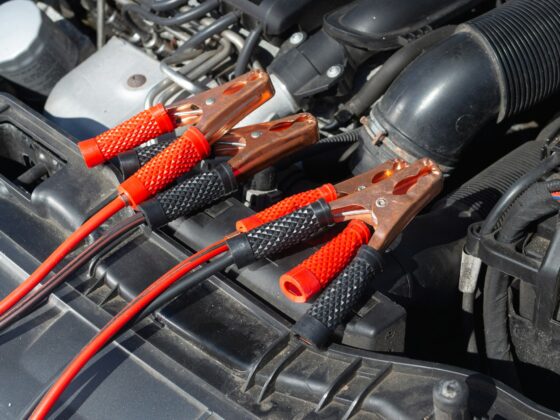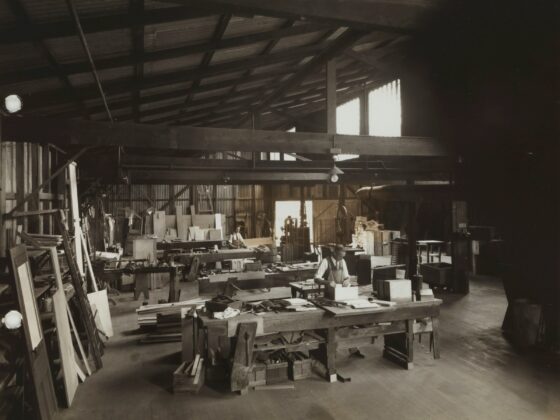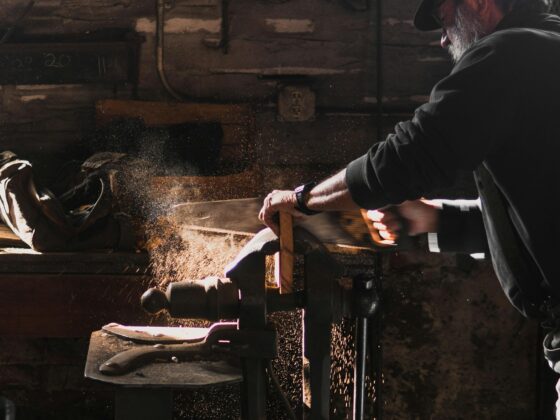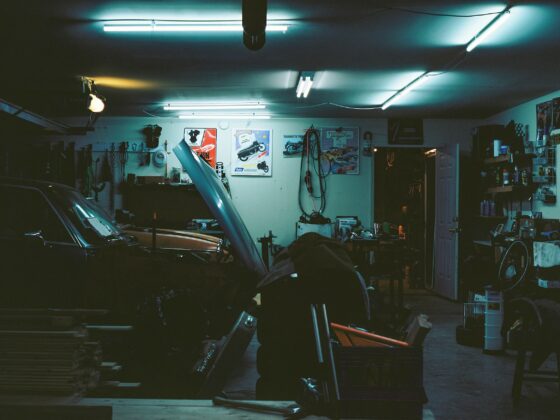Guest Post by The Upland Soul for Organized Home and Shop
Introduction
Every outdoorsman knows that the adventure doesn’t really start at the trailhead—it starts in the garage. That quiet space between four walls and a concrete floor is more than just storage. It’s a launchpad. A workshop. A sanctuary where blades are sharpened, coolers are packed, and gear is made ready for the road ahead.
But for all the talk of axes and engines, we often forget the value of order—not the sterile kind, but the lived-in kind. The kind that knows exactly where the chainsaw lives, where the gas can waits, and where the work light hangs, fully charged. Because when the call of the wild comes knocking, the last thing you want is to be digging through clutter or guessing where your essentials went.
So here are five tools every self-respecting outdoorsman ought to have in his garage—and more importantly, how to store them so they’re ready when you are.
1. Chainsaw – The Essential Tool for Clearing Trails and Cutting Firewood
There’s a certain satisfaction in the roar of a well-tuned Stihl—a modern companion to the axe, built for the same purpose: clearing space, carving out warmth, and keeping the wild at bay just enough to live beside it.
Whether you’re cutting firewood for a woodstove winter or clearing deadfall from a backcountry trail, the chainsaw is an essential tool for any outdoorsman who values preparedness. But power tools, like any good ally, demand care.
Store your chainsaw on a heavy-duty shelf or a wall-mounted bracket—off the ground, blade sheathed, tank emptied if it’s going to sit awhile. Keep a small milk crate nearby with chain oil, a sharpening file, and your work gloves—because when the weather turns or the job calls, there won’t be time to hunt them down.
An honest tool, well-maintained and easy to reach.
2. Axe – Reliable, Rugged, and Low-Tech
An axe is more than a tool—it’s a symbol. Of grit. Of patience. Of work done the hard way, because that’s the way that matters. Whether you’re splitting firewood at a backwoods cabin, clearing brush at camp, or just carving out a bit of peace from a busy world, a well-kept axe belongs within arm’s reach of any outdoorsman.
But even the most seasoned steel needs a home. Hang your axe vertically on a sturdy wall hook or magnetic rack—handle down, mask on. Not tossed in a corner. Not buried under gear. A blade earns respect by what it does—and how you store it is part of that. Keep a sharpening puck or stone nearby, maybe in a labeled tray or drawer. That way, when the time comes to put it to work, it’s already ready.
Because an axe doesn’t ask for much. Just a little space, a little maintenance, and a hand that knows how to swing it.
3. Coolers – Not Just for Food, but for the Work of the Wild
To some, a cooler is just a plastic box that keeps drinks cold. But to the outdoorsman, it’s a tool of utility—rugged and reliable. It holds the weight of fresh-caught trout or a quartered deer. It keeps meals safe on long-haul hunts and becomes a seat around the fire when logs are scarce.
Good coolers aren’t cheap, and they’re not meant to be tossed in a heap. Nest them by size and stack them on a sturdy garage shelf or under a bench. Wipe them clean after every trip, and leave the lid cracked open to keep the mold at bay. If you’re the type who keeps things ready-to-go, stash vacuum-sealed ice packs or camp-ready dry goods inside, so they’re always a step ahead of the next outing.
A cooler isn’t just something you grab on the way out. It’s part of the journey—quietly doing its job, one adventure at a time.
4. Gas Cans – Fueling the Fire, the Ride, and the Work Ahead
In an ideal world, you don’t think much about gas cans. That said, if you need one… you really need one. When you do, it’s usually urgent: the chainsaw’s dry, the ATV’s coughing on fumes, or the generator needs a drink before a storm rolls in. That red can in the corner? It’s more than just backup—it’s quiet insurance.
Store gas cans with the same respect you give fire. Keep them off the floor if possible, in a ventilated corner or a wall-mounted bracket made for the task. Don’t mix them in with your everyday gear—give them space, and give them labels. Diesel? Mix fuel? Regular unleaded? Know at a glance. And keep your spouts, funnels, and gloves nearby in a dedicated bin—because when it’s time to fuel up, you won’t want to go digging.
Outdoorsmen know the value of preparedness. A full can, stored safely and perhaps with some fuel stabilizer additive, is the kind of detail that separates scrambling from steady.
5. Work Light – Because the Day Doesn’t Always End When the Sun Does
There’s a certain kind of work that only happens after dark. Maybe it’s a duck boat engine that won’t turn over just before first light, or gear that needs mending by lantern glow the night before a hunt. Whatever the reason, every garage—every man who lives by the rhythm of the land—needs a light he can count on.
The right work light should be bright, magnetic, and rugged enough to be dropped a few times without quitting. Rechargeable is best—less to fuss with, fewer batteries to chase. Mount a small charging station on a shelf or wall peg, and give the light a dedicated hook so it’s always where it should be: ready.
It’s a small tool. But when the light fades, and the job isn’t done, it becomes the most important one in the room.
Conclusion
A garage isn’t just a place to park the truck or stash some tools—it’s a reflection of how you live, how you work, and how you prepare for the wild edges of life. These five tools—the chainsaw, the axe, the coolers, the gas cans, and the work light—aren’t just gear. They’re extensions of the kind of man who takes ownership of his space and his readiness.
But tools alone don’t make you prepared. How you store them—thoughtfully, accessibly, respectfully—makes all the difference. Because when the road calls, when the work needs doing, or when the weather turns, there’s peace in knowing you can walk into your garage, grab what you need, and go.
A clean garage. The right tools. A life that’s ready for whatever’s next. That’s the spirit of the outdoorsman—and the soul of the organized home.

